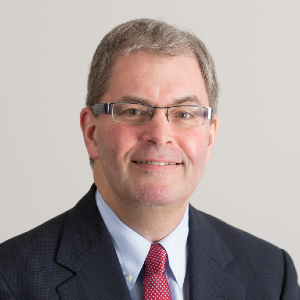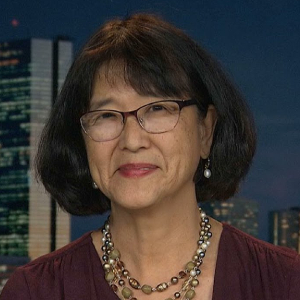By Janessa Sambola-Harris
AALS sections provide opportunities for law school faculty and staff to connect on issues of shared interest. Each of the associations 104 sections is focused on a different academic discipline, affinity group, or administrative area. For a full list of sections and information on how to join, please visit aals.org/sections.
As part of the ongoing “Spotlight on Sections” series, AALS sat down with the leadership of the Section on Comparative Law for a Q&A.
The Section on Comparative Law provides a forum for discussion of problems in the comparison of laws, which are of concern to the comparatists as a profession, and brings to the attention of members of the Association of American Law Schools the experience of other countries with matters of current concern to American professors of law.
Chair: Mark S. Kende, Drake University Law School
Chair-Elect: Margaret Y. Woo, Northeastern University School of Law


Mark S. Kende: My father was born in Budapest, Hungary, so my interest have always had a foreign bent. I lived in France and learned how to speak French in high school and college, which continued that interest. The biggest change for me was when I went into academia after being a civil rights attorney. I did a year-long Fulbright Fellowship in South Africa a couple of years after they adopted a new constitution, which prompted me to become passionately interested in comparative constitutional law. I was actually there while they were sorting through what to do after apartheid, and I got a chance to see how the high court was implementing this new constitution.
Margaret Y. Woo: I was born in Hong Kong, so I too was initially raised in a different culture. I have found that understanding a different culture has actually helped me understand U.S. law a little better. For example, it helps me to move away from accepting U.S. norms as the only standard and more towards understanding law, as Clifford Geertz termed, an “interpretation of culture.” Comparative law is not only an entry to another country’s legal system but it is also a good way to understand our own.
MSK: I share Margaret’s view. In South Africa, it was absolutely eye-opening to see a constitution that was drafted largely on the foundations of the German basic law and the Canadian charter of rights and freedoms. It was fascinating to go somewhere where the American approach was not used, realize the obvious differences, and see how feasible it is to have a more modern approach.
I wanted to teach students about other systems because I wanted to open their eyes to the possibility that there are other ways of conceptualizing justice. We tend to think America is exceptional. That’s not a bad thing at times, but if taken too far, it means you don’t pay attention to what’s going on in the rest of the world.
MYW: I think it’s even more important now. There was a period of time in the 2000s when the mantra was globalization and placing the U.S. as part of a global system. There were greater numbers of students taking comparative law, and there was a lot of interest in international law. In recent years, however, the politics and focus has turned back on nationalism. It seems like schools have pulled back on these comparative law courses, when in fact I think it’s more necessary than ever. The COVID-19 pandemic shows more than ever the need for global cooperation
MSK: The big issue is authoritarianism and the growth of constitutions that are sometimes described as illiberal. We see that in Poland, in Hungary, and in Venezuela. Hong Kong is a different story, but we still see that as people in Hong Kong are trying to promote democracy.
MYW: There are now terms such as authoritiarian democracy and illiberal capitalism. People are trying to make sense of growing executive powers, the consolidation of central authority, and how all that fit into the concept of a democratic polity. It’s a big issue, actually, and again, as evidenced by the emergency presented by COVID-19. Centralization seems to be very effective and efficient for certain crises. We’ve got to figure out a balance; it might work sometimes, but certainly, not in all instances
MSK: [Regarding the COVID-19 pandemic], controversial political developments also have everyone watching how different leaders are doing things. Italy has taken some very dramatic steps, but it’s different from what South Korea is doing. They’re both different from what is likely to happen in the United States. I think this is going to be the next area of significant writing and scholarship. It’s still early, but we already see approaches that are partly based on different constitutions and different cultures. That’s what we study.
I do want to point out that comparative law also has a private law dimension. Comparative private law involves business and financial transactions. Historically, comparative law was often viewed as mainly private law; that’s one of the biggest shifts in the last 20 to 30 years. Constitutional and public law have become just as important.
MYW: I would also add the caveat that in recent years, there’s been a bottom-up study of comparative law. In the private law area, there are interesting studies in comparative dispute resolution, family law, torts.
MSK: It seems to be less of a boutique topic. Even students who do not take comparative law seem to understand that it is important. I teach here a seminar here, and enrollment has been good. When I first started out, it was more of a topic that students had to have a special interest in.
In terms of how I teach the class, I try to focus on current events. As events shift, that affects how I teach. Now, I focus more on countries that are almost contradictory with their constitutions. How can you be a democracy, yet have these other qualities that seem oppressive? It turns out that in some places, dictators have used the democratic process to become dictators. These kinds of issues weren’t as present 15 years ago.
MSK: I’ve been involved for a while because I was chair of the Africa and the Constitutional Law Sections. I’ve been teaching for 25 years, so this was a logical area in terms of where I wanted to contribute. I feel a passion to spread the value of learning about other legal systems, the value of learning how they work, and the value of understanding that justice and equality have more than one meaning and approach. The next step in that pursuit seemed to be getting involved in the section.
MYW: I would like to expand the Comparative Law section to focus more thoughtfully on emerging economy countries. There are many interesting issues in those countries that challenge traditional relationships between law, politics and economy. Being a section leader, I hope I may be able to guide that expansion.
MSK: We started a paper competition last year in honor of Mark Tushnet, who is retiring from Harvard and is a famous, generous scholar whose work in comparative law has been crucial in the early 21st century, going back about 15 years to when he rejuvenated the field with a new casebook co-authored with Vicki Jackson. The competition is for non-tenured, new faculty. The first winner was Professor Jorge Farinacci Fernos, who teaches at the Inter-American University of Puerto Rico.
In the past, we published bibliographies so that everyone can see what others are working on. This helps our scholars identify opportunities for coauthoring or mentorship, if they are writing in similar areas.
MYW: We also co-sponsor different section programs to encourage scholars to cross subject matter lines. We often issue Call for Papers and seek out publication opportunities such as the Journal of Legal Education, which has a particular interest in international and comparative law issues.
MSK: I’m the chair this year, and we are fortunate to have Margaret as the chair next year. We have a secretary, a treasurer, and a relatively large executive committee with six or seven people. That committee includes several former section chairs, which is a great body of wisdom.
MSK: They should feel free to email or contact us or other members of the executive committee. There are also opportunities to do programming. If they want to get involved in some of the AALS open programs like hot topics and other innovative sessions, we can help them figure out how to do that. The best way to get to know people is to come to the Annual Meeting.
MYW: Now that everything is on the web, communication is much easier. Even the whole voting process is done electronically. This has helped to facilitate involvement throughout the year, not just at the Annual Meeting.
MSK: I had hoped to organize an interdisciplinary panel at the Annual Meeting, and it looks like we’ve succeeded in that. I just received word today that the Section on Constitutional Law has agreed to co-sponsor our panel. Part of the message we want to send by having good panels is that learning only American law in a globalized world is not enough. I’m going to do some networking with other sections to see if it’s possible for us to co-sponsor additional activities.
MYW: Next January’s program is going to be on socioeconomic rights, which is one emerging area in our field that takes an innovative approach to finding that there are rights—housing, education, or health care for example—that governments are supposed to either honor or make best efforts to honor. We are going to have a speaker who works with the United Nations, a political scientist who has written a wonderful book on positive rights, and experts on the courts in India and South Africa. These are some of the innovative rights that are very new to American thought and that we benefit from learning about when we take this approach of looking abroad.